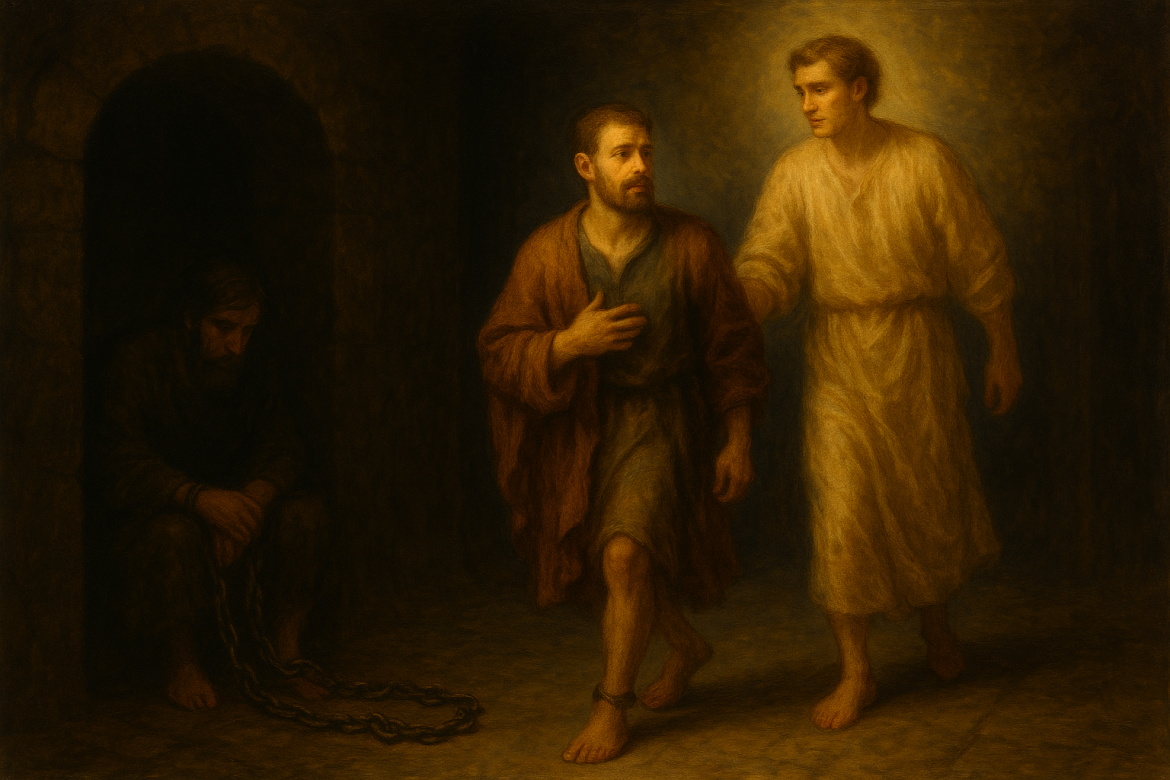152
The Question That Never Leaves UsWhy do bad things happen to good people? It’s one of the most persistent and deeply personal questions faced by believers and non-believers alike. From the days of Job to the tragedies in today’s world, suffering challenges our understanding of justice, faith, and God’s nature. While there may be no easy answers, Scripture and the lives of faithful individuals throughout history offer powerful insights that help us face suffering with wisdom, resilience, and hope.The Unpredictability of Life and God’s PlanIn Acts 12, we read that James, the brother of John, is killed by Herod, while Peter, also arrested, is miraculously freed. Both men were faithful disciples, deeply committed to the mission of Christ. Yet, one perished while the other lived. Why? From our human vantage point, it seems arbitrary—perhaps even unfair. But this contrast introduces a critical spiritual truth: suffering or deliverance is not a measure of one’s worth, faith, or closeness to God.Suffering, then, is not always punishment. Nor is comfort always a reward.Human Choices and a Fallen WorldMany of the world’s sorrows can be traced to human free will. Evil, injustice, cruelty, and selfishness wreak havoc in societies and relationships. Natural disasters and accidents further remind us of a broken creation. But perhaps one of the most sobering realizations is that even the most heinous individuals often believe they are doing what’s right. In a world where God grants free will, suffering can be the result—not of divine abandonment—but of the misuse of that freedom.God does not ignore this. Instead, He steps into the suffering with us. His presence is a constant, even when His actions seem hidden.Suffering with a Purpose: Refined Through FireJames’ martyrdom became a powerful witness. Peter’s continued life meant more work in building the early church. Suffering, while painful, can have transformative power. It humbles us, deepens our dependence on God, builds empathy, and challenges others to consider the depth of our faith.The faithful response to suffering reveals something to the world: that even when life doesn’t make sense, trust in God remains. This is echoed in Jesus’ own words—we are called to take up our crosses. Discipleship is not always comfortable. Sometimes, it costs everything.Modern Voices on Ancient PainRabbi Harold Kushner’s book When Bad Things Happen to Good People reminded readers that God’s presence is more important than a perfect explanation. His insight—comfort over answer perfectionism—offers peace amid unresolved questions.C.S. Lewis, a former atheist, famously said that God “shouts to us in our pain.” After losing his beloved wife shortly after their marriage, Lewis’s reflections in A Grief Observed and The Problem of Pain show how suffering strips away illusions and calls us to rely wholly on God. Pain becomes not just a test, but a megaphone to rouse a world too often deaf to spiritual realities.Job: The Ultimate ExampleThe book of Job is perhaps the Bible’s most comprehensive wrestling with the problem of suffering. Job was blameless, yet endured immense loss and confusion. His friends wrongly assumed his suffering was a result of sin, echoing a simplistic theology: good things happen to good people, bad things to bad ones.But Job didn’t suffer because he sinned. He was a test case for faith in the face of unexplained hardship. God’s eventual response doesn’t provide answers—it offers perspective. “Where were you when I laid the foundations of the earth?” God asks. We are reminded that divine wisdom surpasses human understanding.Job’s restoration is not about material compensation—it’s a vindication of his faith. He loved God not because life was good, but because God was good, even in life’s worst moments.Historical Witnesses of Faith Amid PainThe lives of Dietrich Bonhoeffer, Corrie ten Boom, and C.S. Lewis embody different responses to suffering, all rooted in faith.
Bonhoeffer, executed for opposing the Nazis, showed the cost of conscience and true discipleship. “When Christ calls a man,” he said, “He bids him come and die.”Corrie ten Boom, a survivor of a concentration camp, extended forgiveness to her captors. Her story demonstrates that even in horror, grace and courage can prevail.C.S. Lewis, though a theologian, responded to personal loss with raw honesty and enduring faith.

